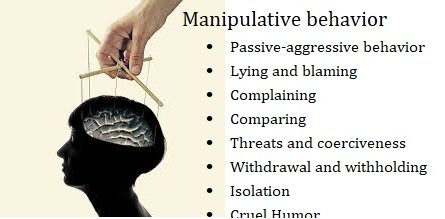Parenting
Parenting refers to the process of raising and caring for children, including providing physical, emotional, and psychological support, as well as guiding their development and upbringing. The role of a parent can be both rewarding and challenging, and it is one of the most important and influential relationships in a child’s life.
There is no one right way to parent, and individual parenting styles can vary greatly based on cultural background, personal beliefs, and individual experiences. However, effective parenting generally involves a combination of warmth, responsiveness, and structure, along with clear expectations, consistent discipline, and a supportive and encouraging environment.
Parenting styles
Parenting styles refer to the consistent patterns of behavior and attitudes that parents use in their interactions with their children. There are several widely recognized parenting styles that have been identified through research, including:
- Authoritarian parenting:
This style is characterized by strict rules, high expectations, and a lack of warmth and responsiveness. Parents who use this style are often seen as controlling and demanding, and they may use punishment as a way to maintain control.
- Permissive parenting:
This style is characterized by a lack of control, high levels of warmth and responsiveness, and few rules or expectations. Parents who use this style may allow their children to make their own decisions and may not enforce consequences for misbehavior.
- Authoritative parenting:
This style is characterized by high levels of warmth and responsiveness, clear rules and expectations, and an emphasis on open communication and negotiation. Parents who use this style are seen as both supportive and demanding, and they aim to provide structure and guidance while also allowing their children to develop independence and autonomy.
- Uninvolved parenting:
This style is characterized by low levels of warmth and responsiveness, low levels of control and expectations, and a lack of involvement in a child’s life. Parents who use this style may provide little structure or guidance and may not be actively involved in their children’s daily lives.
Research has shown that authoritative parenting is often associated with the best outcomes for children, including higher levels of self-esteem, academic success, and resilience. However, the most effective parenting style will depend on the individual needs and characteristics of each child and family, and different parenting styles may be more or less effective in different situations.
Factors that can influence parenting:
There are many factors that can influence parenting, including:
Family background: Family background can play a significant role in shaping a parent’s beliefs and attitudes about child-rearing. For example, parents who grew up in strict households may be more likely to adopt an authoritarian parenting style, while those who grew up in permissive households may be more likely to adopt a permissive parenting style.
Cultural background: Cultural background can also play a role in shaping parenting styles. For example, some cultures may place a greater emphasis on strict discipline and obedience, while others may place more emphasis on nurturing and warmth.
Personal beliefs and values: Personal beliefs and values, such as religious beliefs, political views, and attitudes toward child-rearing, can also influence parenting styles. For example, some parents may believe in using strict discipline to enforce obedience, while others may believe in using positive reinforcement and praise to encourage good behavior.
Child’s age and developmental stage: The age and developmental stage of a child can also influence parenting styles, as different approaches may be more or less effective depending on a child’s developmental stage.
Parental stress and mental health: Parents’ own stress levels and mental health can also impact their parenting. For example, parents who are struggling with depression or anxiety may find it more challenging to provide consistent and supportive care for their children.
Economic and social factors: Factors such as poverty, unemployment, and social isolation can also influence parenting, as these stressors can impact a parent’s ability to provide for and support their children.
It’s important to note that these factors can interact with each other and can vary from family to family and that the most effective parenting style will depend on the individual needs and characteristics of each child and family.
Effective parenting:
Effective parenting refers to the use of positive and supportive parenting practices that foster the healthy development of children. Effective parenting involves:
- Building a warm and nurturing relationship with your child: This involves showing love and affection, spending time with your child, and being responsive to their needs and feelings.
- Providing clear and consistent rules and expectations: This involves setting boundaries and limits, establishing routines, and being consistent in your approach to discipline.
- Encouraging independence and self-esteem: This involves allowing your child to make decisions, solve problems, and take risks, while also providing positive reinforcement and praise for their efforts.
- Promoting positive behaviors and attitudes: This involves modeling positive behaviors and attitudes, such as kindness, empathy, and respect, and reinforcing these behaviors when you see them in your child.
- Being involved in your child’s life: This involves staying informed about your child’s activities and interests, volunteering at their school or extracurricular activities, and participating in family activities and events.
- Balancing structure and flexibility: Effective parenting involves finding a balance between providing structure and support, while also allowing your child to grow and develop in their own way.
It’s important to note that effective parenting will look different for each family and will depend on the individual needs and characteristics of each child and family. However, by using these general principles, parents can help foster healthy development and positive outcomes for their children.
In conclusion, parenting is a complex and challenging role, but it can also be one of the most rewarding experiences of a person’s life. By focusing on effective communication, providing a supportive environment, and understanding the needs and developmental stage of their children, parents can help their children to reach their full potential and become happy and healthy adults.




